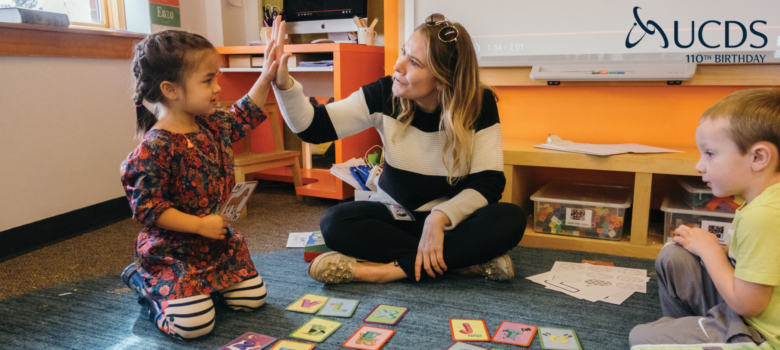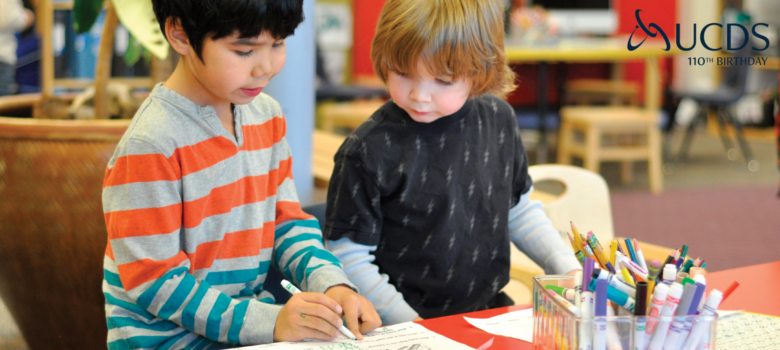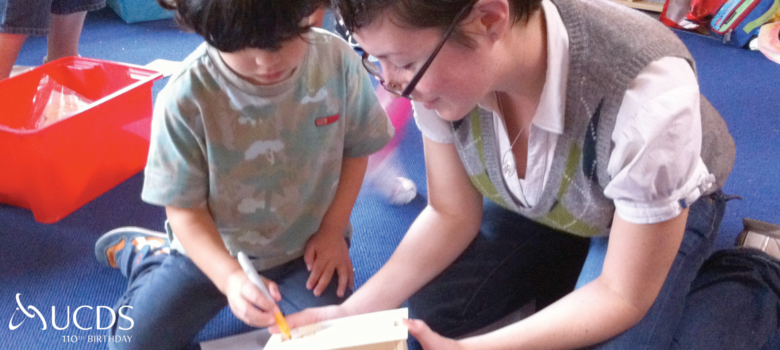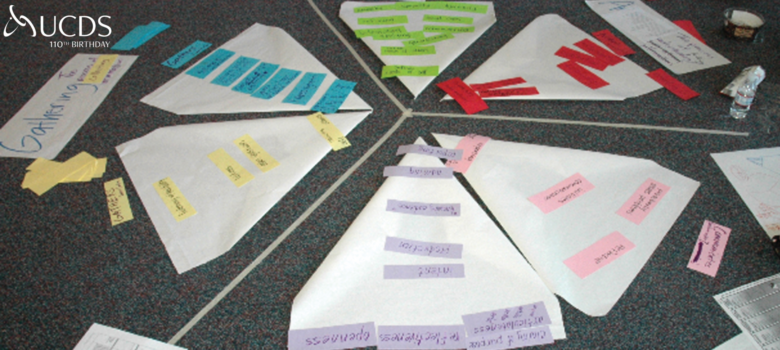Early Elementary Program
Literature Groups provide us with one more way to promote a love of reading and to study a variety of literary genres with Early Elementary students. It allows all children, regardless of their independent reading skills, to enjoy the same books, to share their thoughts and opinions and to discuss many of the “big” ideas and questions that books can cultivate. In addition, Literature Groups foster a meaningful connection between home and school; they offer a way for students to share a piece of their school day, and a way for parents/guardians to experience some of their child’s blossoming intellect and self-expression.
Children bring books home to be read with a parent/guardian. We encourage using post-it notes to mark favorite pages or note a question or idea that can be shared when meeting with a small group at school. During Literature Groups, group process skills are emphasized, with children becoming proficient at taking turns, listening to others, expressing and supporting opinions and even leading the discussion independently.
1-2 Program
Literature Group book discussions make it possible for our students to consider ideas, problems and perspectives that have existed through time and across cultures. Students meet weekly to discuss books from a wide range of genres and reading levels. Teaching teams choose books that deepen student understanding of the year’s all school theme and support cultural awareness, geographical knowledge and social studies. Literature Groups are kept small in order to promote a language-rich experience that develops reading and comprehension skills, as well as speaking, listening and writing. Students practice following the ideas of others as well as expressing their own thoughts and opinions as they engage in lively discourse with peers and a teacher. At the 1-2 level, children examine literary elements, make connections and formulate questions for the group for discussion.
Students take a literature book home each week, read it with a grown-up and return it to school the following week for dialogue with peers and a teacher. Teaching teams select books specifically for their literary themes. For this reason, some books may be difficult for students to decode. We have found that students often have better comprehension when adults and students read the book together and discuss the book as the plot unfolds. Children at these levels are generally asked to respond to the book by reviewing four Table Topic questions, talking about these ideas with adults, and preparing to discuss their ideas with their group. Adults are also encouraged to read the weekly Table Topic assignment and invite discussions on the topics involved. Supporting students to comprehend the themes in the books helps prepare them for discussions in school.
3-4-5 Program
Literature book discussions make it possible for our students to consider ideas that have existed through time and across cultures. Students meet weekly to discuss books from a wide range of genres and reading levels. Teaching teams choose books that deepen student understanding of the year’s all- school theme and support cultural awareness, geographical knowledge and social studies. Literature groups are kept small in order to promote an experience that develops reading and comprehension skills, as well as speaking, listening and writing. Students practice following the ideas of others and taking a leadership role as they engage in lively discourse with peers and a teacher.
Teaching teams select books specifically for their literary themes. For this reason, some books may be difficult for students to decode. We have found that students often have better comprehension when parents/guardians and students take turns reading aloud and discuss the book as the plot unfolds. Parents/Guardians are also welcome to read the weekly written assignment and invite discussions on the topics involved.
Literature homework is assigned weekly. We create assignments to promote thinking about specific literary elements such as character development, setting, historical context and literary devices. We ask students to plan time to read the assigned pages and to respond to questions through art and writing.




